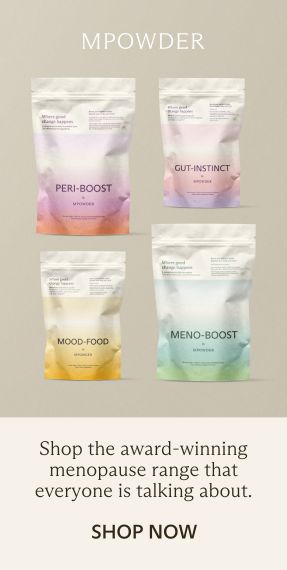It is also a critical mineral in menopause because it influences so many of the systems and processes that we need to align to support our sleep, bone health, heart health, blood sugar balance and energy levels.
Clinical trials have shown that magnesium improves insomnia against a number of measures. One study demonstrated how magnesium supplementation appears to improve subjective measures of insomnia such as sleep onset latency and early morning awakening, as well as insomnia objective measures such as the concentration of serum melatonin and cortisol.
Researchers have found that magnesium also appears to play a role in reducing chronic pain, the prevention of migraines and in reducing anxiety too.
Magnesium is called ‘nature’s calming mineral’ for good reason. It is a ‘GABA’ agonist - which is a neurotransmitter in our brains known for its calming effects. And there is strong evidence that magnesium relaxes our nervous system by regulating our normal stress response.
Interestingly, studies indicate there also appears to be a ‘vicious circle’ linking magnesium depletion with increased stress, where:
- Magnesium deficiency enhances the body’s susceptibility to stress…and
- Stress depletes the body of magnesium, leading to a magnesium deficiency
We tend to be lower in magnesium than men across our lifespan. However, general stats estimate that around 50% of the American population is now deficient in magnesium today. In part this will be due to the quality of soil which then impacts the nutritional content of the wholefoods we consume. But the amount of ultra processed food we have in our diets is also a significant factor.
So, what can we do to ensure we have enough magnesium to support our bodies in midlife and beyond?
- Start with what you put on your plate: Look at including more high quality cacao in our diet (remember, it is also present in our award-winning Peri-Boost blend!). Increase your intake of leafy greens such as spinach, nuts like almonds, pumpkin seeds…but also beans and bananas.
- Look at what you may need to reduce: Coffee, fizzy drinks, alcohol..all strip our bodies of magnesium so minimise consumption if you can.
- Supplement smartly: As those of you that tune in to our conversations with Dr Martins will know, not all supplements are created equal! Look to Magnesium glycinate or Magnesium malate when browsing your health store aisle. Take it with your B-vitamins, selenium and vitamin D (or simply purchase one of our foundational blends, where we’ve done the hard work to ensure the best format and dosage level for you!). And consider timing. We actually leave a little room in our formulations for an evening top of our magnesium via an alternative source (see below), should you struggle with sleep - as taking before bed can have a big impact.
- Take a bath: Our skin is great at absorbing magnesium. Epsom bath salts are incredibly effective - and a warm bath before bed has the dual benefit of also relaxing your body and soothing your mind.
- Take time to breathe: break the stress cycle so your body can retain the magnesium you feed it. Look to breathwork, meditation and prioritising what brings you joy.
Finally, if you are troubled by cramps and muscle twitches - please don’t simply put up with it. It could be an early warning signal from your beautiful body - and ignoring it can be dangerous for your healthspan, with studies showing that 84% of postmenopausal women with osteoporosis also have magnesium deficiency. Book that appointment with your doctor. Get your levels professionally assessed, and get support swiftly.
With love, Rebekah & The MPowder Team
Safety note: Nature packs a powerful punch. Before making any changes to your lifestyle, always seek advice of your medical practitioner - and remember supplements and wholefoods can impact absorption of prescription medicines.
Research sources:
https://pubmed.ncbi.nlm.nih.gov/30248967/
https://pubmed.ncbi.nlm.nih.gov/33865376/
https://pubmed.ncbi.nlm.nih.gov/23853635/
https://www.ncbi.nlm.nih.gov/pmc/articles/PMC5786912/#R49
https://pubmed.ncbi.nlm.nih.gov/15214300/
https://www.ncbi.nlm.nih.gov/pmc/articles/PMC7761127/
Share Twitter Facebook Pinterest

